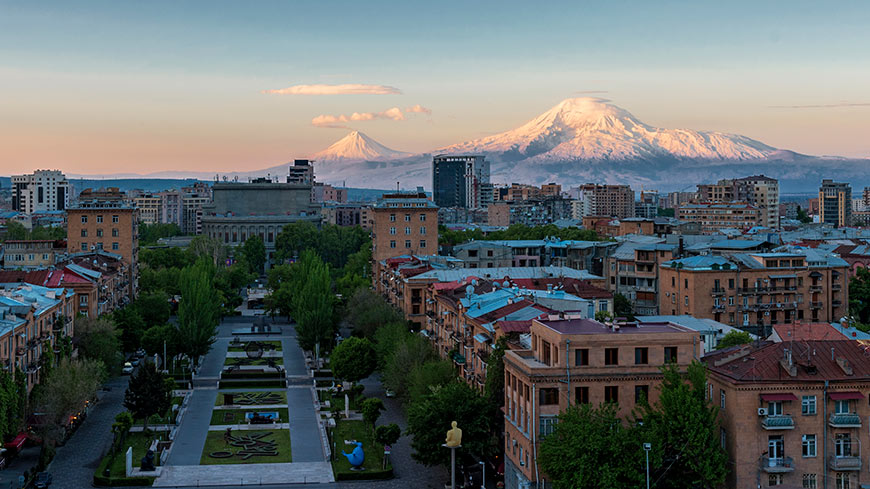The Conference of INGOs is publishing a report on its official visit to Armenia held on 27-29 November 2019.
During the visit, the hosting organisation, the Federation of Youth Clubs of Armenia (FYCA), organised two meetings with more than 50 NGOs: human and civil rights organisations, lawyers and women organisations, LGBTI groups, youth organisations, anti-corruption NGOs, volunteers’ organisations. The Permanent Representation of Armenia to the Council of Europe organised the meetings with several public authorities: Ministry of Justice, Ministry of Foreign Affairs, Ministry of Labour and Social Affairs, Armenian PACE delegation, Municipality of Yerevan and Human Rights Defender Institution.
The report of the visit highlights the strong need to introduce more progressive public policies and to reinforce participatory democracy in a sustainable way. This should result in the:
- Adoption of a strategic roadmap to foster an enabling environment for civil society in Armenia
- Acceleration of the process of ratification of the Council of Europe Istanbul Convention, accompanied by awareness raising campaign to dispel false ideas about the Convention and to inform the population about all the areas and rights covered by this Council of Europe legal instrument
- Implementation of the specific legal provisions and practices aiming to protect the LGBTI persons who currently do not have adequate protection from attacks, discrimination, hate speech and hate crime
- Reinforcement of youth policy and stronger consideration of the needs of young people
- Ratification of the Additional Protocol providing for a system of collective complaints under the European Social Charter
Regarding the financial aspect of the functioning of the civil society sector there is a strong need to improve the tax treatment for NGO economic activities, give equal treatment to NGOs and business and improve the effectiveness and transparency of state funding.
In order to increase transparency and public trust and reduce polarisation, clear rules on public participation and selection criteria should be established by the Ministries, the National Assembly, Local Government and all public agencies involved in public policies.
The Velvet Revolution, as well as post-revolution context shows a strong commitment of the Armenian civil society sector in the change making process and in the improvement of public policies. We encourage all stakeholders to reinforce the culture of dialogue, based on transparency and accountability, in order to materialise the changes already made and implement the ambitious ongoing political agenda.
The Conference of INGOs' delegation thanks all the interlocutors and contributors to this report.



